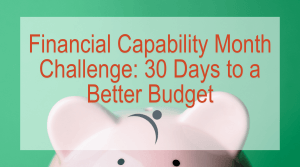5 Tips to Prepare for a Hurricane
Updated: May 22, 2023
Take action TODAY to be better prepared for when the worst happens. Preparing for hurricane season can truly be a life saver. Understand your risk from hurricanes, and begin preparations now. The season goes from June through November. We’ve gathered 5 precautionary measures you can implement now to help keep you, your family, and/or business be safe.

Whether you decide to “stay put” during an impending hurricane or to evacuate, it’s important to create a plan you can refer to when changes happen quickly. Things to include in your plan are evacuation location, transportation, emergency supply kit, important phone numbers, family meet up spots, and shelter locations. Another important thing to note, if you’re a pet owner make sure you know where the pet-friendly shelters are. In addition to your plan, make sure to find out what your city’s plan is as well. This includes finding where your local shelters are located and registering family members with special medical needs.
These emergency supplies will be your lifeline not only during the storm, but after. The National Weather Service recommends you have enough food and water to last each person in your group a minimum of 3 days. Along with food & water your supplies should include, flashlights, lanterns, & batteries for potential power outages. Additional supplies include: medicine (prescriptions, pain/fever relievers, etc.), first aid supplies, & important documents(medical, will, insurance, etc.). Fill gallon baggies with water and freeze in freezer, so your perishables will be safe and cold if you lose power. You can also melt it and use it for drinking water.


Reviewing your insurance policies is imperative. It’s recommended to review all policies such as home, auto, boat, and RV before a hurricane hits. Many insurance agencies will not make changes to policies once a storm or hurricane develops. Another important thing to note, most home insurance covers some hurricane damage expenses, but they may not cover flood damage. This is especially important for those who live on the coast. It is suggested that you reach out to your insurance company directly to understand what your policy does and doesn’t cover. For more information on flood insurance and flood risk in your area, click HERE.
Look for potential threats on the exterior of your home including landscaping. This should be done regularly especially if you live on the coast, but definitely leading up to a storm or hurricane. For landscaping, determine what needs to be trimmed or cut back to prevent damage to the exterior of your home including trees and bushes. Doing this ahead of a hurricane gives Waste Management enough time to pick up your trimmings. If you have hurricane shutters then install them. If you don’t have shutters you can still protect your windows by using plywood. Visit your local hardwood store to purchase plywood panels then cut the panels to fit your windows. Make sure you have a space to store outdoor furniture.


With hurricanes, there is potential for extreme winds, storm surges, flooding, and tornadoes. There are variations of each of these threats so it’s important that you are aware of each of them and know what to do in case of an emergency. Don’t use generators in any enclosed space (laundry rooms, garages, closed-in porches, etc.) because of carbon monoxide emissions.
In the event of a hurricane, a little preparedness can make all the difference. It’s important that you don’t wait for a warning to be issued as the stores will most likely be empty and possibly closed…Stock up now! For more on preparing and what to do before, during, and after a hurricane, click HERE. You and your family’s safety is what’s most important. And remember… don’t forget about your furry friends! For the most accurate up-to-date information regarding a potential storm, visit the National Hurricane Center website.


